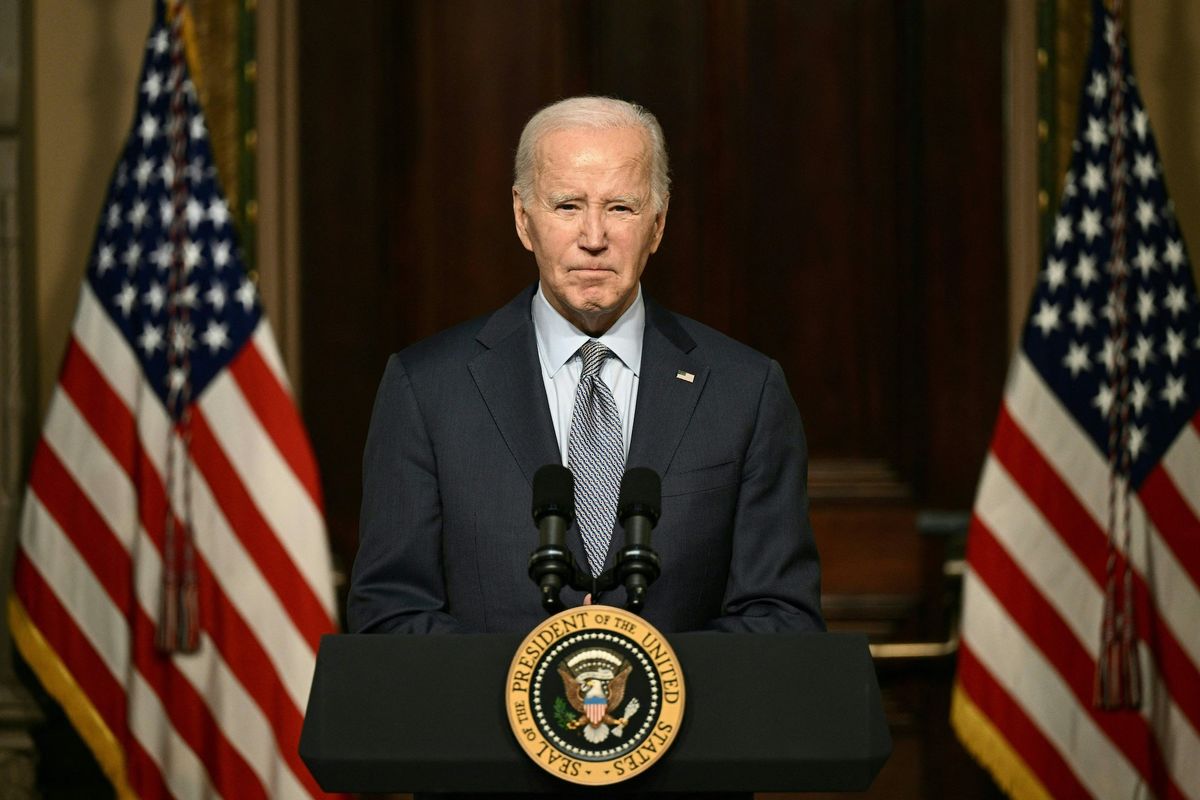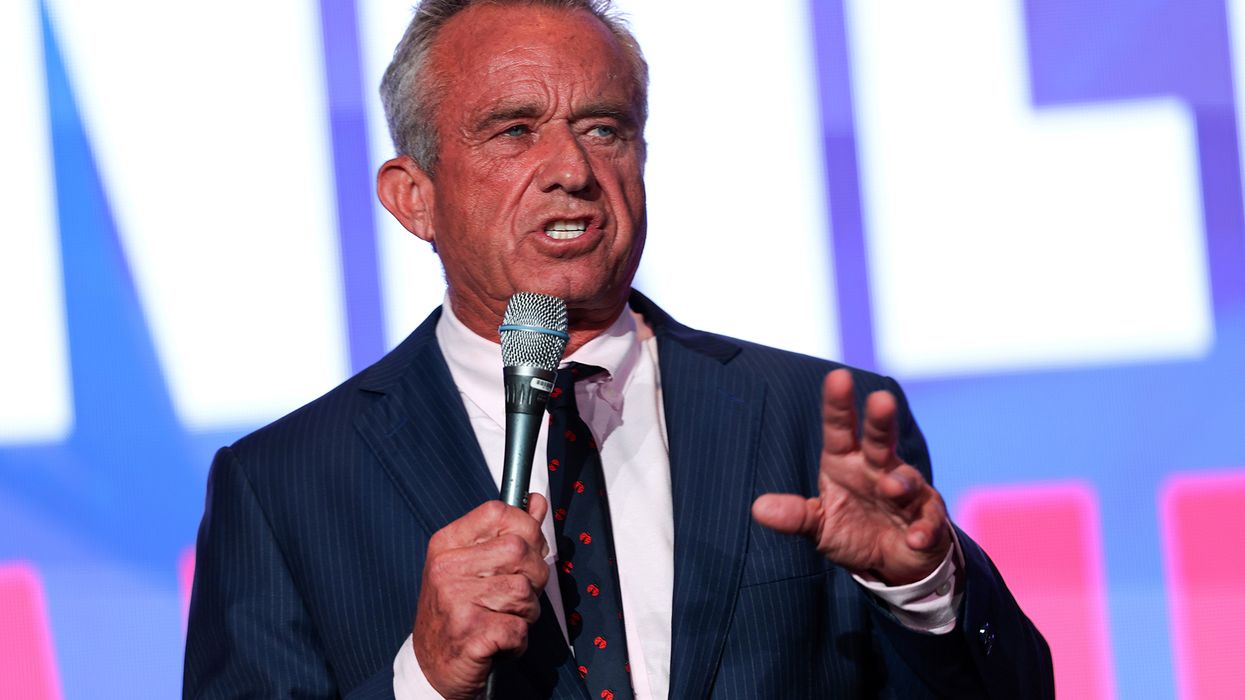President Joe Biden is no longer running for reelection in 2024.
In a historic decision to step aside, Biden joins Lyndon B. Johnson as the only modern president to willingly forgo a chance to serve another four years.
Biden announced on social media that “in the best interest of my party and the country” he will relinquish his hold on the Democratic Party’s nomination. In a later post, he gave his “full support and endorsement” to Vice President Kamala Harris to become the Democratic nominee.
“It has been the greatest honor of my life to serve as your President. And while it has been my intention to seek reelection, I believe it is in the best interest of my party and the country for me to stand down and to focus solely on fulfilling my duties as president for the remainder of my term,” Biden wrote in a letter to the nation on Sunday.
Biden said he plans to address the nation about his decision “later this week.” The president tested positive for Covid-19 last Wednesday.
Even as Bidenworld trumpeted calls for party unity and turning the page on Sunday afternoon, behind the scenes, the president also stands down under a thick air of intraparty feuding and aggressively hurt feelings.
Just days prior to Biden bowing out, a person close to president said they, along with others in the Biden inner orbit, were “so fucking livid” at the sustained drive among other elite Democrats to pressure Biden out of the race as quickly as possible, including while the president has been ill with Covid. “He is still their leader, and he’s earned more respect than this,” the source added.
Numerous other Democratic sources on Capitol Hill and well-connected liberal political operatives had been telling Rolling Stone since Thursday that it was widely expected to be a matter of just a handful of days before Biden would bow out of the general election against Trump, citing Biden and his White House senior staff’s growing receptiveness to the panic among his prominent allies.
Before the weekend was done, those allies and doom-predicting Dems got their wish.
The move to withdraw comes weeks after Biden, 81, delivered a catastrophic performance during a June 27 debate with Donald Trump in Atlanta, in which the president was unable to effectively make the case against Trump on key issues like abortion, or for his own candidacy. At one point, Biden seemed to completely lose his train of thought, ending an answer about a question about the national debt by claiming nonsensically that he’d “finally beat Medicare.” He came across, indelibly, as the right wing has long caricatured him: a politician who’d not only lost a step, but command of his most critical capacities.
Biden followed that debate debacle with a passable teleprompted rally the next day in North Carolina, but it wasn’t enough to assuage concerns from Democratic lawmakers, donors, and voters, an increasing number of whom called for the president to step aside in the ensuing weeks. Biden repeatedly insisted he was staying in the race. He told George Stephanopoulos that he wouldn’t step down unless the “Lord Almighty” came down and told him to. He told reporters during a solo press conference at the NATO summit the following week that he’d only leave if his closest aides told him there was no way he could win. He told Lester Holt the week after that that nothing had changed and he was in it to win it.
Biden dismissed concerns about his physical and mental fitness for office, but these appearances weren’t without their pauses, stumbles, and outright gaffes. Biden’s polling numbers sank, and in mid-July an Associated Press survey found that two-thirds of Democratic voters felt he should step aside. Meanwhile, the Democratic Party’s power players — including Senate Majority Leader Chuck Schumer and House Minority Leader Hakeem Jeffries, along with former House Speaker Nancy Pelosi — reportedly worked behind the scenes to convince him to drop out of the race.
The move to withdraw places a bookend on an extraordinary career in American politics, and a presidency that stands as one of the most consequential since Johnson’s. The list of Biden’s signature accomplishments (or, as he might dub them, “BFDs”) is long. It includes:
- The largest climate investment in history, the Inflation Reduction Act, which is marshaling as much as a half-trillion dollars to support the deployment of clean energy, electric cars, home efficiency upgrades, carbon-smart agriculture, among many other features, and has the country on a path to cut peak emissions in half by 2030.
- A generational investment in infrastructure, providing $1.2 trillion in long-delayed federal funding for roads, bridges, airports, levees and more.
- Placing the first Black woman justice on the Supreme Court, Ketanji Brown Jackson.
- The CHIPS Act, which is helping revive America’s high-tech microchip manufacturing — an insurance policy against the kind of global supply chain havoc produced by the pandemic.
- Passage of a 15 percent minimum tax on large corporations.
- Providing Medicare, finally, with the ability to negotiate the cost of a suite of expensive drugs, and imposing a cost cap on insulin for seniors.
- Debt relief and loan forgiveness totalling more than $160 billion for millions of student borrowers.
- Ensuring the solvency of the U.S. Postal Service.
- Rescuing the pensions of nearly a million retirees.
- Marshaling the world to support Ukraine’s defense against Russian invasion.
Apart from these key victories, Biden also led America through a paradoxically painful, booming recovery from the Covid-19 pandemic. The recovery has featured historically low unemployment and steady economic growth, as well as the price shocks of sustained high inflation. The pinch has been felt daily at the grocery store, the gas pump, and the fast food drive-through. It has also been experienced in the cost of borrowing, with elevated mortgage and car-loan rates, as the Federal Reserve raised interest rates aggressively in an attempt to lower inflation. Despite rising wages, these soaring costs contributed to a widespread sense of consumer malaise — including more than half of Americans believing the country was in a recession — that was not matched by macroeconomic data that have consistently marked a strong economy.
Biden’s handling of the Israel-Gaza war has also proved divisive, particularly within his own party. Following the Oct. 7 attacks, Biden has stood staunchly with Israel, even as the war waged by the Netanyahu government, ostensibly against Hamas militants, has brought international condemnation for killing tens of thousands of civilians.
Biden currently has some of the lowest approval ratings of his presidency.
Biden said during his 2020 run that he sees himself as a “bridge” to the next generation of leaders, who are the “future of the country.”He would go on tosave American democracy by defeating Trump later that year. His decision to withdraw from the 2024 race signals an inverse of that proposition: His physical frailty and faltering mental capacity have become a threshold issue for too many voters — and his candidacy risks tipping the election to the openly authoritarian Trump. Now emboldened by a Supreme Court that would put few bounds on his despotic ambitions, having now placed the presidency beyond the reach of criminal law, Trump’s fascist fantasies could easily become America’s horrific reality.
This is a breaking story and will be updated as more information is released.
















